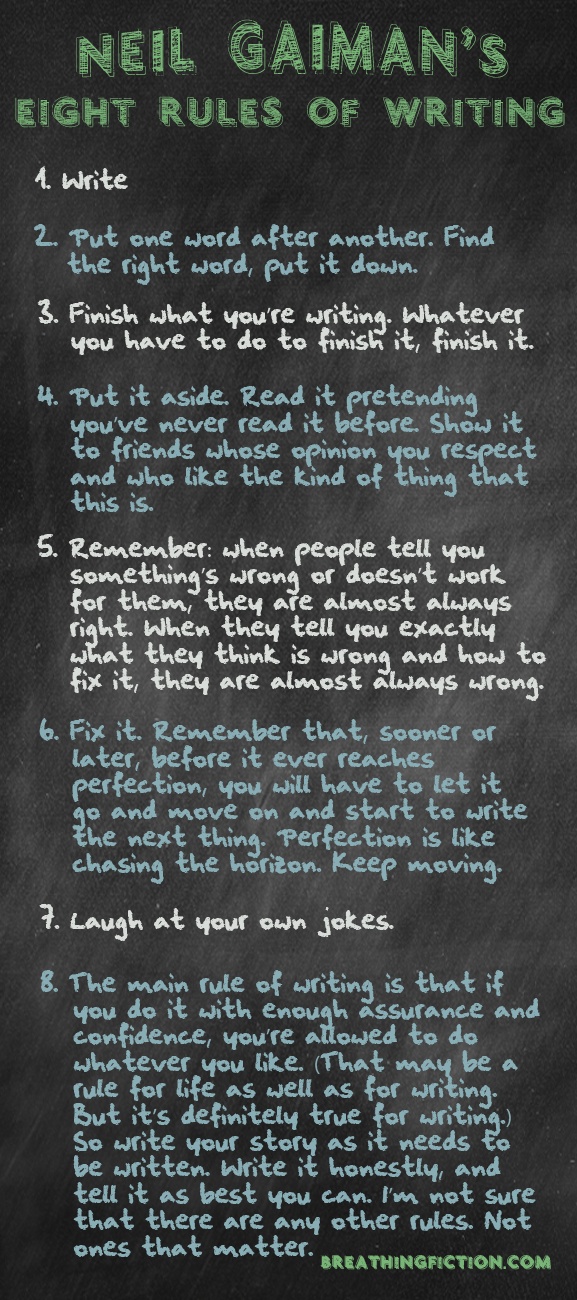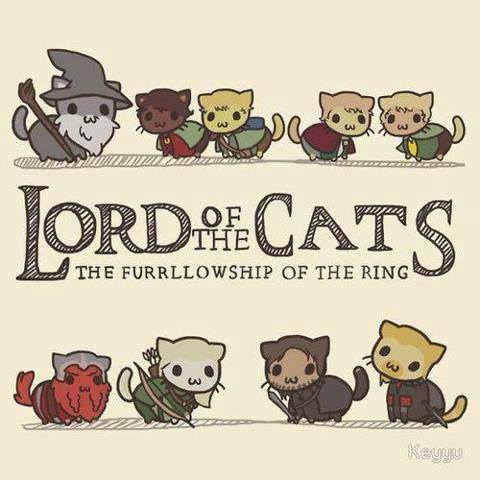Bibliomaniac Scarlet
I came here to keep in touch with all my friends who left GR after the censorship debacle. I read a little of every genre. I co-blog at Musings of a Bibliomaniac.
Currently reading



 6
6
Unpopular Opinion: Too flawed to be fun
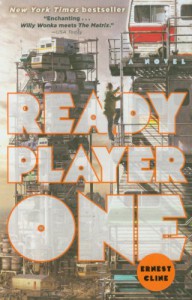
The only thing about Ready Player One that I can even remotely appreciate is the nostalgia it might stir up in readers who grew up in 80s America. Cline, in his debut offering, uses his love and knowledge about yesteryear pop culture to cleverly mask its many technical shortcomings. He lays out a plot that guarantees fun - an elaborate 80s-themed treasure hunt in a futuristic virtual world. And judging by the high average rating on GR, he seems to have gotten away with it.
How "fun" this book is depends on how much you know, or want to know, about the movies and video-games and music of the 80s. Forget the west, I hardly know anything about Bollywood movies from that era. So reading this book was like being stuck in a fangirl/fanboy convention without a clue about what the gush-fest was for. My initial curiosity kept me entertained and Cline's long explanations made sure I could keep up but that lasted only for the first 30 percent. The onslaught of pop culture was so relentless that fun turned to exhaustion pretty quickly. My patience finally ran out around page 300
(show spoiler)and I skipped straight to the rather-obvious end.
Let's keep the pop-culture aside and look at the rest.
Characters? Flatter than cardboard. One-dimensional. Painfully contrived.
Writing? I won't call it terrible, but it's not something worth appreciating either. Mediocre at best, annoyingly juvenile at worst. I've come across better sentence construction in fanfiction.
Plot? It is one long sequence of duex ex machinas. Crazy coincidences. Stumbling across lifesavers by chance. Inane plans that work out. Every. Single. Time.
My eye-balls hurt from all the eye-rolling.
World-building? If you're going to give me amazing virtual reality, you must first make me believe in a real world where such a thing can be thought of as feasible. But as detailed as the OASIS is, Cline's real world is just as vague. All I know is that it's 2044 and the Earth is ugly because there's climate change and energy crisis and starvation and all that. So everyone escapes by logging into the OASIS - something that requires a special console, haptic gloves and virtual-reality visors.
Yeah right.
What frustrates me most is the lost potential in the tale. We're talking about people who are so fully attuned to their virtual selves that they have no life outside the OASIS. There is so much to explore here - the psychology of these characters, the clash of identities, the perception versus reality debate. But Cline takes all that potential and throws it out the window. No wait, he mentions a lot of deep things and then leaves them be. Because how can thought-provoking and fun exist at the same time, no?
There is nothing wrong with fun. But there is also nothing spectacular about fun. Which is why I'm more than a little surprised with all the gushing reviews and high ratings. I expect this to be the most unpopular of all my unpopular opinions, but I believe Ready Player One is one of the most overrated books I've ever read.
Ready Player One: At 10%

"I was horrified at the thought of IOI taking control of the OASIS. The company's PR machine had made its intentions crystal clear. IOI believed that Halliday never properly monetized his creation, and they wanted to remedy that. They would plaster advertisements on every visible surface. User anonymity and free speech would become things of the past. The moment IOI took it over, the OASIS would cease to be the open-source virtual utopia I'd grown up in. It would become a corporate-run dystopia, an overpriced theme park for wealthy elitists."
So basically, this is like Amazon taking over Goodreads and fucking it up.
Got it.
Review: Not a Drop to Drink
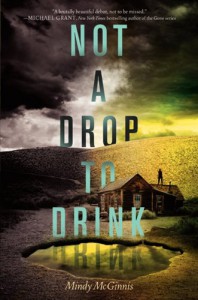
Some spoilers, nothing major.
It is highly frustrating when a book that screams potential fails to live up to it. Not a Drop to Drink could have been something bold and off-beat but alas, McGinnis just had to squeeze in unnecessary cliches and kill the originality.
Not a Drop to Drink describes an apocalypse that is chilling in its plausibility - no drinking water. In Lynn's world, having a pond in your backyard is akin to having an unlocked safe that everyone knows about and wants a share of. Survival does not come with a list of alternatives. Either kill to defend what you have or die trying. If you have nothing, take what you can by force or die from a parched throat.
It's a hard life in a bleak world for Lynn, and the only person she shares it with is her mother. Hardened by circumstance, these women spend hours on the roof scoping the horizon for strangers and shoot without hesitation whenever someone gets too close. They do their own hunting, grow their own vegetables, chop their own firewood, drink from their own pond.
 8
8
Just fell short of great

A Tale for the Time Being is like one of those assorted platters you get in restaurants - there is a little bit of everything but not everything is necessarily appealing. Unlike dining, however, I'm not at the liberty to pick and choose here. Consequently, my reaction to the overall book is kind of hazy. Some portions blew me away (mostly the last quarter). Some portions made me think. Some broke my heart, some left me appalled, some put me to sleep. And then there were these parts that I simply did not understand.
I'm intrigued by this book. It is weird and inventive and very, very deceptive. It is so much more than what it claims to be. It is so dense without actually feeling dense. It is so easy to read but not so easy to comprehend.
A Tale for the Time Being is the story of two women, separated by distance and time, yet intimately bound by a relationship that cuts across all dimensions - one reads what the other has written.
 11
11
55% done

I finally see hints of magic realism. A girl just had a conversation with a ghost, and there is this crow that I don't think is a crow.
Why does this remind me of Murakami?
P.s. At least no cats have gone missing. Yet.
 2
2
Currently reading

This is the first time I'm reading a shortlisted book before the Booker prize is announced ^_^
The Lowland sounds promising, but I'm not a fan of Jhumpa Lahiri, I'm afriad.
We Need New Names received mediocre reactions from some of my friends over at GR so that killed my enthusiasm.
The Luminaries is a little too long. 800+ pages??!
The Testament of Mary sounds a little too theological.
Harvest, while intriguing, hasn't been so buzzed about. I'll consider reading it if it wins.
So yeah, Ruth Ozeki's book is all I'm left with.
I hope I like it! Then I'll have something to root for when the Booker committee announces the winner next week!
 6
6
Forgive Me, Matthew Quick. I'm not impressed.

Either this book failed to do what it set out to do, or I went in with the wrong expectations. Whatever the cause, Forgive Me, Leonard Peacock did not have any appreciable impact on me.
You see, I read this book hoping to gain some insight into the mind of a school shooter. Someone like Kevin Khatchadourian, just not so inherently evil. I wanted this book to scare me, stun me, make me question, make me think, maybe break my heart a little.
What I did not want this book to do (and what it essentially did) was give me a long list of excuses for why this guy was walking around with a gun in his bag.
Now, I'm not trying to undermine the gravity of the situation here. Leonard has had a tough life; has endured some horrible things. He's depressed, he's lonely, he's been bullied, and I understand how difficult that is to get through. But isn't that true for a lot of teenagers?? Not everyone lugs a P-38 to school though. Shouldn't there be something more? Something in the way Leonard's mind works? Something to do with the person that Leonard is rather than the circumstances?
Review: Lolita

A couple of months ago, I ventured for the first time into the territory of literary pedophilia with Alyssa Nutting’s controversial novel Tampa. It did not go so well. As much as I understood the point of that exercise, I couldn’t appreciate it, drowning as I was in a sea of utter disgust. I was repulsed by Celeste and everything she said and did - not an unconventional reaction when all that your protagonist can talk about is having sex with children.
When I decided to acquaint myself with the infamous Humbert Humbert, I was equal parts wary and curious. Wary, because of all the Tampa/Lolita comparisons; curious, because I wanted to know what Nabokov had done differently to warrant the label of a classic and a slew of 5-star reviews.
35% done

I feel like I'm reading about a teenager surviving in a post-apocalyptic world. Not quite the afterlife I imagined.
 3
3
 4
4
Edgar Allan Poe-try
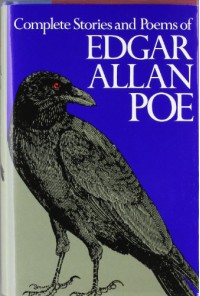
A DREAM WITHIN A DREAM
Take this kiss upon the brow!
And, in parting from you now,
Thus much let me avow—
You are not wrong, who deem
That my days have been a dream:
Yet if hope has flown away
In a night, or in a day,
In a vision or in none,
Is it therefore the less gone?
All that we see or seem
Is but a dream within a dream.
I stand amid the roar
Of a surf-tormented shore,
And I hold within my hand
Grains of the golden sand—
How few! yet how they creep
Through my fingers to the deep
While I weep—while I weep!
O God! can I not grasp
Them with a tighter clasp?
O God! can I not save
One from the pitiless wave?
Is all that we see or seem
But a dream within a dream?
 4
4
A couple of additions:
11. The right to write a review however you want of the book you read - however much you read.
12. The right to shelf a book however you want.
“To the person in the bell jar, blank and stopped as a dead baby, the world itself is a bad dream.”

There is this scene in Chapter 10 of The Bell Jar where Esther Greenwood decides to write a novel.
"My heroine would be myself, only in disguise. She would be called Elaine. Elaine. I counted the letters on my fingers. There were six letters in Esther, too. It seemed a lucky thing."
I cannot help wondering, is that what Sylvia Plath thought when she wrote The Bell Jar? Did she, like Esther, sit on a breezeway in an old nightgown waiting for something to happen? Is that why she chose the name Esther? 6 letters - just like in Sylvia. For luck?
It's impossible to read The Bell Jar and not be affected, knowing what happened to Plath. I mean, it's everywhere. She is everywhere. All of Esther's musings are Plath's own. It's eerie. There's hardly any comfort even when Esther is freed from the bell jar; on the contrary, it's a brutal reminder that this book is ultimately, part fiction.
Plath's poetic prowess shows through her writing - especially the descriptions. They are so simple yet so fitting. There is one in particular I loved, where Esther compares her life to a fig tree:
"I saw myself sitting in the crotch of this fig tree, starving to death, just because I couldn’t make up my mind which of the figs I would choose. I wanted each and every one of them, but choosing one meant losing all the rest, and, as I sat there, unable to decide, the figs began to wrinkle and go black, and, one by one, they plopped to the ground at my feet"
Here's another:
"I saw the years of my life spaced along a road in the form of telephone poles, threaded together by wires. I counted one, two, three...nineteen telephone poles, and then the wires dangled into space, and try as I would, I couldn’t see a single pole beyond the nineteenth."
The writing is remarkably unemotional and I don't mean that as a bad thing. Esther's (or Plath's?) commentary dwells entirely on thoughts and perceptions, never feelings. Depression is so often mistaken as a form of sadness. This woman, however, is not sad. She is empty. She is a shell. She contemplates killing herself with a kind of ease that's unnerving.
The Bell Jar did not make me cry but I wish it did. What I'm left with now is a deep sense of unhappiness that I don't think tears can fix.
Why is it that the most talented always fall prey to the bell jar? It's such a waste.
 5
5
Not blown away
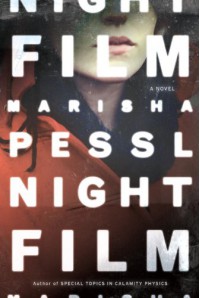
Night Film opens with one hell of a prologue - easily the best I have ever come across. Those opening pages exude such authentic creepiness that it becomes impossible to not keep turning the pages, to not want to know more about the enigma of the reclusive legendary Hollywood director, Stanislas Cordova. This, I believe, is Pessl's greatest achievement here. With multimedia inclusions and some tight writing, she manages to do in a handful of pages what so many authors spend entire books trying; she manages to intrigue the reader, to lure him in, to make him take the bait.
I blew through this not-so-slight book in less than 3 days. That should give you an idea of the reading frenzy I was in.
So why the low rating??
Because once the frenzy ended and I put the book down, I realized I wasn't wowed by the actual plot or blown away by that ending and all it did or didn't imply.
The only feeling I was left with was an intense desire to watch a Cordova movie.
So the book certainly didn't fail. I wasn't bored or unaffected but the effect it did have was not really the kind Pessl intended, which is why I can't say it succeeded either.
Night Film follows a disgraced investigative reporter, Scott McGrath, as he digs into the mystery surrounding Ashley Cordova's suicide. Ashley, daughter of horror-film director Stanislas Cordova and a former piano prodigy, jumps to her death in downtown New York. Scott (who is such an unremarkable character that I'm struggling to find words to describe him) teams up with two twenty-something sidekicks (who are equally unremarkable and on top of that, annoying) as he runs around chasing clues, trying to hunt the truth that shifts and eludes like the patterns in a kaleidoscope.
The plot is one long treasure hunt centered around Cordova and while the chase is thrilling, I couldn't care less about the people I was forced to team up with. Every time Scott and his sidekicks took a break to ponder over their personal dilemmas, I would start to skim till the words 'Ashley' or 'Cordova' popped up again.
Night Film is not the kind of book that gives you the correct answer. What it gives you instead are multiple answers to the same question and leaves you to speculate which one is correct, if there even is such a thing as correct. If truth is a notion, how can anything be true? While the idea is great in theory, it did not hit me like I wanted it to. My reaction at the end was, "Who cares what the answer is when it doesn't change anything?" but I guess that has more to do with the kind of person I am. Maybe I'm someone who cares more about the effects and not the causes.
The writing is... good. If you ignore the inconsistency and the overuse of unnecessary italics, that is. There were some great parts writing-wise but no line or quote stood out enough to stay with me.
Overall, I'd definitely recommend Night Film. It did not blow me away but it was gripping enough to make me sacrifice sleep. This book is an experience and while the impact may differ from person to person, I think it is an experience worth having.
P.s. The Blackboards actually exists. See here.
 3
3





 5
5
 1
1
